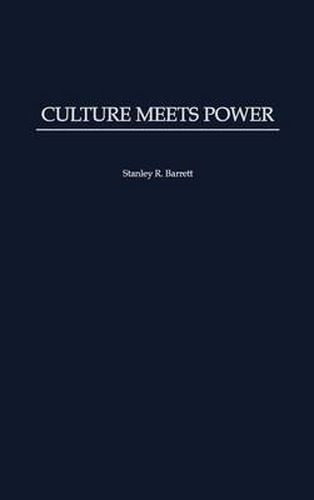Readings Newsletter
Become a Readings Member to make your shopping experience even easier.
Sign in or sign up for free!
You’re not far away from qualifying for FREE standard shipping within Australia
You’ve qualified for FREE standard shipping within Australia
The cart is loading…






A comprehensive, balanced, and sophisticated overview of virtually all the major theory and policy issues confronting sociocultural anthropology today, probing the decline of the concept of culture and the rise of the concept of power, as a result of globalization. In recent years the concept of power has soared to the top of the anthropological agenda, while the concept of culture has been found inadequate in understanding the contemporary world. The purposes of this study are to explain why power has become a central interest in the discipline, to evaluate the explanatory potential of power, to demonstrate how to analyze power in the ethnographic context, and to consider whether the culture concept can be salvaged. In chapter one the process by which the profile of power became elevated as a result of globalization is analyzed; included here is the critique of culture. In chapter two, a broad overview of the conception of power from early political anthropology to key works in philosophy, political science, and political sociology is attempted. Some anthropologists have recently tried to rescue the culture concept; this is the focus of chapter three. Although the argument in this study is that power is fundamentally important, it would be a mistake to think that power is any less ambiguous than culture or any other concept; thus, in chapter four it is shown that for each of 20 major assumptions about power, there is a plausible counter-assumption. Chapter five ties the study together by exploring the debates about power in the context of ethnography. The study ends with a postscript on the terrorist attacks on America of September 11, 2001–a poignant reminder that culture and power sometimes intersect to produce human tragedy on a grand scale.
$9.00 standard shipping within Australia
FREE standard shipping within Australia for orders over $100.00
Express & International shipping calculated at checkout
A comprehensive, balanced, and sophisticated overview of virtually all the major theory and policy issues confronting sociocultural anthropology today, probing the decline of the concept of culture and the rise of the concept of power, as a result of globalization. In recent years the concept of power has soared to the top of the anthropological agenda, while the concept of culture has been found inadequate in understanding the contemporary world. The purposes of this study are to explain why power has become a central interest in the discipline, to evaluate the explanatory potential of power, to demonstrate how to analyze power in the ethnographic context, and to consider whether the culture concept can be salvaged. In chapter one the process by which the profile of power became elevated as a result of globalization is analyzed; included here is the critique of culture. In chapter two, a broad overview of the conception of power from early political anthropology to key works in philosophy, political science, and political sociology is attempted. Some anthropologists have recently tried to rescue the culture concept; this is the focus of chapter three. Although the argument in this study is that power is fundamentally important, it would be a mistake to think that power is any less ambiguous than culture or any other concept; thus, in chapter four it is shown that for each of 20 major assumptions about power, there is a plausible counter-assumption. Chapter five ties the study together by exploring the debates about power in the context of ethnography. The study ends with a postscript on the terrorist attacks on America of September 11, 2001–a poignant reminder that culture and power sometimes intersect to produce human tragedy on a grand scale.